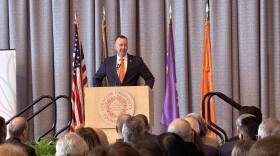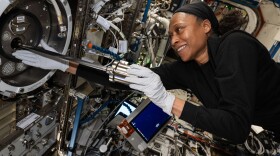Onondaga County officials are shining a light on a group of people who work behind the scenes to solve crimes: forensic scientists.
DNA analyst Mackenzie Kilkeary said working in the forensic sciences can be tough and grueling, but it can also be rewarding.
"At the end of the day, we know that we're making kind of a greater good to society,” Kilkeary said. “We're helping find justice in one way or another, so that's something that kind of keeps us going."
Kilkeary is just one of the staff members at the Wallie Howard Jr. Center for Forensic Sciences who is being honored as part of Forensic Science Week.
Onondaga County Executive Ryan McMahon said the work they do is critical.
"These experts employ cutting-edge technology, analytical skills, unwavering dedication to solve complex crimes, identify victims, exonerate the innocent, and bring perpetrators to justice," said McMahon.
The county said within the past year, the center has investigated more than 880 cases involving firearms, processed biological evidence in more than 500 criminal cases, and examined digital evidence in more than 100 criminal investigations.
Joe Coolican, the first chief ADA in the Onondaga County district attorney’s office, said most counties across the state depend on the state police lab in Albany for their investigations. He feels lucky that there’s an independent lab right in Onondaga County.
"We have the capability to reach out to the lab and triage evidence and determine what testing would be the most probative bang for buck to do justice, whether it's building the strongest case or exonerating somebody because the evidence isn't there,” he said.
Onondaga County Health Commissioner Dr. Kathryn Anderson said public health intersects with forensic science. It helps detect drugs in circulation in our community in a couple of different ways.
"Testing drugs that are found on scene, so testing drugs themselves. The other is through testing DWI cases, so in that manner, we can test people who are alive but driving impaired to see what's in their system, and then finally, some of our most important data, the overdose death-related data, is from testing decedents in the medical examiner's office,” Anderson said.
Anderson said the center is also looking toward the future, by using cutting-edge technology and educating future forensic scientists.








